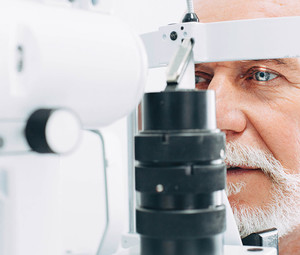Featured
Table of Contents

Normal eye evaluations are necessary for maintaining excellent vision and spotting possible eye health and wellness issues early. The regularity of these examinations can differ significantly based on an individual's age, way of living, and overall health and wellness. Comprehending the advised schedule for eye exams can assist guarantee that people of any ages obtain suitable care and tracking for their eye health and wellness.
Infants and Toddlers (0-2 Years)
For infants and young children, eye exams are crucial for discovering any potential vision issues early. The American Academy of Ophthalmology suggests that a child's initial eye exam should take place at around six months old. During this initial browse through, the eye treatment professional will assess the child's visual growth and check for any noticeable eye concerns.Following this initial examination, it is advised that kids have one more eye test at age three. This check out will concentrate on assessing the youngster's overall visual function, including eye positioning and the ability to track things. If no concerns are spotted, the next examination ought to be arranged before the youngster starts institution, generally around age 5 or 6.
School-Aged Youngsters (6-18 Years)
Once children get to institution age, regular eye examinations must be set up each to two years. Vision is critical for learning and advancement, and numerous colleges perform vision testings. However, these screenings do not change a thorough eye test by an eye care expert.For kids included in tasks or sporting activities calling for substantial aesthetic focus, annual eye exams might be advisable. Additionally, if a kid shows indications of vision problems-- such as trouble reviewing, scrunching up your eyes, or constant headaches-- a check out to the eye medical professional ought to be arranged asap.
Young Grownups (19-39 Years)
Young person commonly have less vision changes than older age teams, but regular eye examinations stay important. The general recommendation is to set up an eye examination every 2 years during this duration. Individuals with particular threat aspects-- such as a family members background of eye condition, diabetes mellitus, or those that put on call lenses-- need to think about annual eye examinations.In addition, those who spend significant time on electronic devices may experience electronic eye strain. If symptoms such as dry skin, exhaustion, or obscured vision occur, it might be smart to see an eye treatment professional quicker.
Adults (40-64 Years)
As individuals get in midlife, the chance of creating vision troubles increases. Grownups aged 40 to 64 need to arrange eye tests every one to two years. This age might begin to experience presbyopia, an all-natural age-related problem that makes it testing to concentrate on close items. Eye examinations can additionally aid detect other typical age-related conditions such as glaucoma, cataracts, and macular degeneration.If individuals in this age group have risk aspects such as hypertension or diabetes, they may call for even more regular exams to check their eye health and wellness very closely.
Senior Citizens (65 Years and Older)
For elders, regular eye exams come to be also much more important. The American Optometric Organization recommends that people matured 65 and older have an eye exam at least once a year.Final thought.
Recognizing the appropriate routine for eye exams based on age is crucial for keeping optimum eye health and wellness throughout life. From babies to senior citizens, routine eye assessments play a vital function in spotting concerns early and making sure that vision remains sharp. By adhering to these standards and talking to an eye treatment expert, individuals can take positive actions toward preserving their vision and general health and wellness. Whether it's a child's very first browse through or an elderly's yearly check-up, focusing on eye care is an investment in lifelong wellness.Latest Posts
Experience Coastal Elegance at Deauville Inn
Published Apr 17, 25
1 min read
Experience Coastal Style at Deauville Inn
Published Apr 10, 25
1 min read
Host Your Perfect Occasion: Location Rental Choices for Every Event
Published Mar 06, 25
1 min read